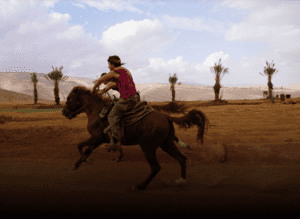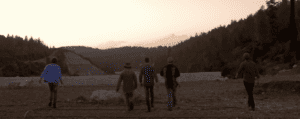“And when ye reap the harvest of your land, thou shalt not wholly reap the corner of thy field, neither shalt thou gather the gleaning of thy harvest; thou shalt leave them for the poor, and for the stranger: I am the Lord your God.” (Leviticus 23:22)
This one short verse gives us three commandments. The three commandments are known as Leket (gleanings), Shichacha (forgotten produce), and Peah (corners – referring to the corners of the field). The Torah gives us a built-in welfare system for the poor of our communities. Farmers may not take every scrap of their produce for themselves. Leket, shichacha, and peah are specific rules that the farmer must follow when harvesting his crop.
Leket: If one or two crops fall to the ground during gleaning or harvesting, they should be left for the poor.
Shichacha: If a farmer forgets one or two sheaves, those should be left for the poor.
Peah: A corner of the field that the farmer designates for the poor to come and harvest for themselves.
These commandments are beautifully profound for several reasons. The first and most obvious reason is that we are obligated by the Torah to look out for our fellow man, and it gives us very specific instructions on how to do so. There is even an incredible organization in Israel today called “Leket,” which organizes volunteers to go to fields after harvest and pick the leftover fruits and vegetables for the needy. Leket is involved in several other programs that involve feeding the hungry, but the source of inspiration comes from these verses in the Bible.
Furthermore, these commandments return dignity to charity. The needy are not receiving handouts. They are going to the fields and participating in the work. Although they are getting the goods for free, it is a valuable lesson, and they gain the satisfaction of knowing that they worked for their food. The Torah is promoting charity and kindness, as well as hard work and industriousness.
Another reason why these commandments are so special is because they are a very real reminder that we do not own or control this world. Everything comes from God, and successful crops come from Him. We are all His children, and so we must look out for our less fortunate brothers and sisters, and make sure that they are taken care of and have what to eat.
On the upcoming holiday of Shavuot, we read the Biblical story of Ruth. This story is filled with kindness and selflessness, starting with Ruth leaving her homeland to care for her mother-in-law Naomi, even after her own husband passes away. Boaz, a wealthy field owner, meets Ruth while she is gleaning the leket, shichacha, and peah of his fields. Boaz even tells his workers to purposely drop extra things for her. They fall in love, and their most famous descendant is King David. Greatness comes from charity and kindness, values deeply embedded in the Torah and Judaism.




